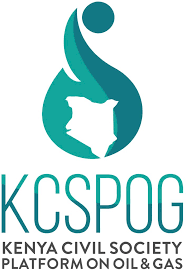Early Oil from Turkana – Marginal Benefits/Unacknowledged Costs Report (2018)

The prospects for the full field development of Turkana oil continue to improve with Tullow Oil announcing a planned Final Investment Decision (FID) by 2019 and possible first oil in 2021/22. The barrier to the exploitation of Turkana oil continues to be oil export infrastructure. The only viable approach to the full development of the oil fields is a pipeline to the coast.
Available evidence suggests that there is enough oil in the South Lokichar Basin to support an independent pipeline. The Government has already awarded the tender for an engineering plan (known as a Front End Engineering and Design or FEED) to Wood Group. According to Tullow, environmental and social impact assessment activities for the pipeline are also ongoing. An independent pipeline however will almost certainly result in additional delays. Tullow now reports that the earliest possible date for first exports through a pipeline is 2021.
Faced with a growing time gap before pipeline-based exports, the Kenyan government is pressing for an interim transportation solution to kick-start exports. Starting in late 2015, reports surfaced of a plan to export Turkana crude oil by truck to Eldoret and then by train to the retrofitted refinery in Mombasa. There have been media reports on the early oil proposal, but there is little information in the public domain about plan for early oil production or its economic implications.
The early oil proposal dubbed the “Early Oil Pilot Scheme (EOPS)” was officially launched by President Uhuru Kenyatta on 3rd June 2018 at the Ngamia-8 well site in Lokichar, Turkana County. About 2,000 barrels of oil will be hauled per day from Lokichar to the Kenya Petroleum Refinery Limited (KPRL) storage facility, currently leased to the Kenya Pipeline Company (KPC), in Changamwe, Mombasa. The oil will be ferried by trucks each mounted with special tanktainers (transport containers), each with a load capacity of 150 barrels of oil. The scheme is expected to run for a period of two (2) years.
The early oil project, however, has been met with mixed reactions owing to the fact that the project will have no economic benefits to Kenyan’s during its expected lifetime, a concern watered down by the Government in its adamant push for implementation of the project under the guise of testing the international markets with Kenya’s crude while also setting up the necessary infrastructure in-country as we prepare for the development and production phases of the Turkana oil fields project.
The Kenya Civil Society Platform on Oil and Gas (KCSPOG) is committed to expanding transparency and increasing public awareness on the prospects for oil development in Kenya. In particular, the Platform seeks to contribute to a public assessment of both the costs and benefits for the citizens of Kenya generally and the oil host communities specifically.
